
The Business of Fashion
Agenda-setting intelligence, analysis and advice for the global fashion community.

Agenda-setting intelligence, analysis and advice for the global fashion community.
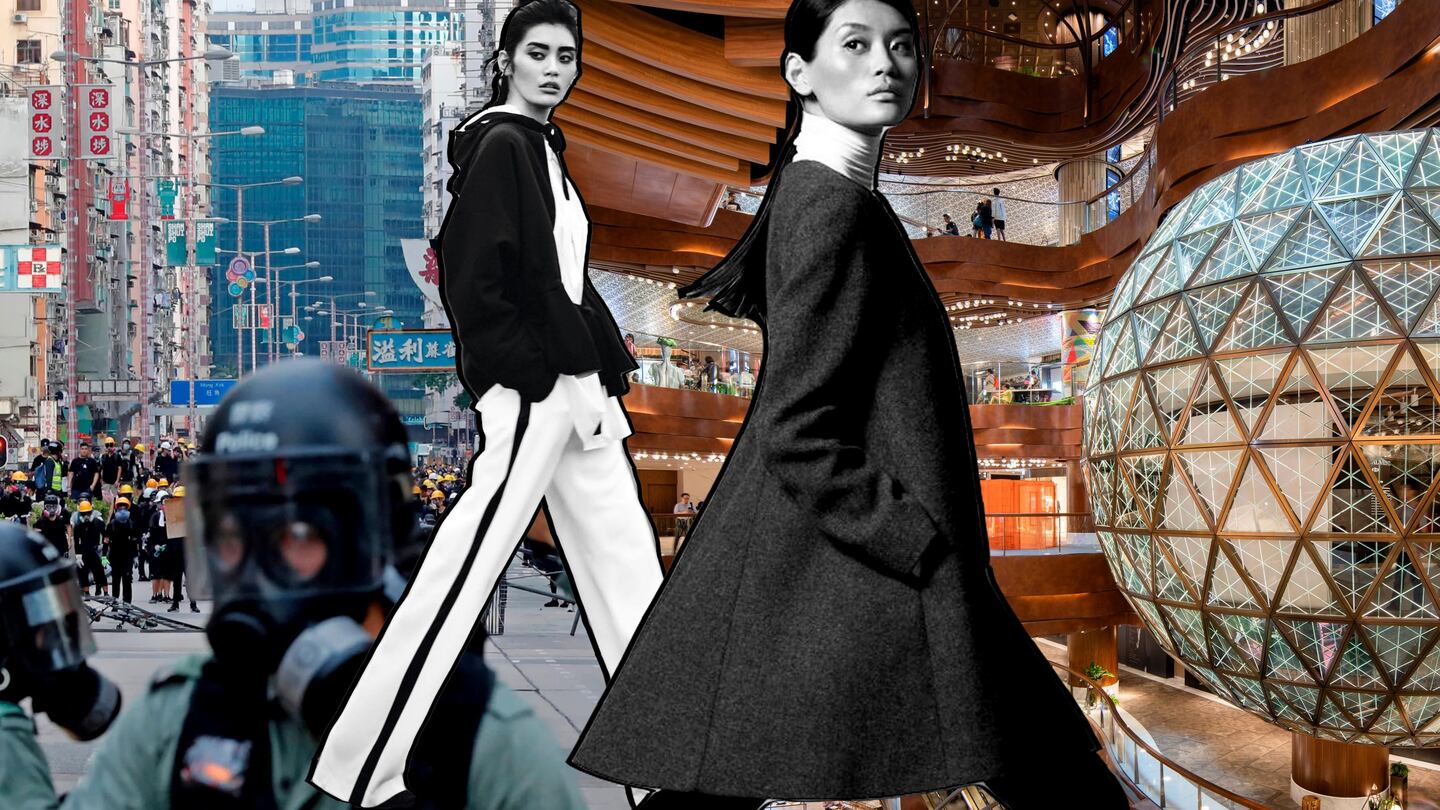
HONG KONG, China — This week, the political turmoil that has roiled Hong Kong for 24 weeks spiralled further, with protests, usually confined to the weekends, spilling into the work week. Hong Kong's struggle to stay open for business, amidst increasingly violent clashes between its young people and police, is a widely acknowledged disaster for luxury brands operating here.
Accounting for more than five percent of global luxury spend, according to Bernstein analysts, the loss of Hong Kong for the luxury retail industry would indeed be a significant blow. Thus far, with the exception of Richemont, which blamed recent soft quarterly earnings in part on the drop off of sales in Hong Kong, luxury giants such as LVMH and Kering have continued to report healthy year-on-year growth globally, in spite of acknowledging the "negative" and "difficult" effect of the protests on Hong Kong's retail environment.
It is into this unenviable environment that Adrian Cheng, a billionaire real estate and jewellery scion and founder of a network of K11 art malls that dot major cities in China, opened his long-awaited new Hong Kong retail destination two months ago.
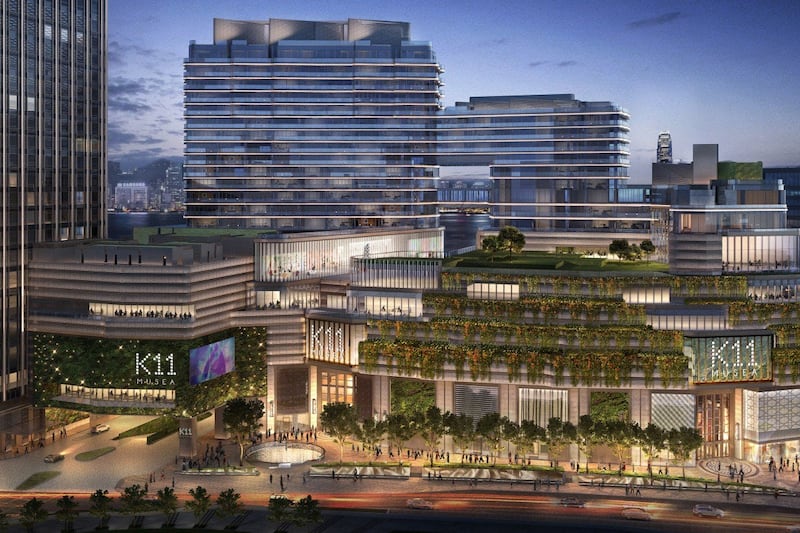
Hong Kong's K11 Musea development | Source: K11 Musea
ADVERTISEMENT
K11 Musea was to be the centre of Cheng's decade-long rejuvenation of the Victoria Dockside precinct, 1.2 million-square-feet of "cultural retail", housing brands including Alexander McQueen, Yohji Yamamoto, Loewe, Sergio Rossi, as well as Moda Operandi's first showroom in the Asia-Pacific region.
Mere weeks after its opening, reports circulated of the postponement of K11 Musea's grand opening ceremony, one of a slew of events in Hong Kong, including Chanel's highly-anticipated cruise show, that were being put on hold across the city.
In light of this volatile market environment, it will come as a surprise to many to hear Cheng today describe how business at his latest art mall is doing.
“We are doing phenomenally great,” he unequivocally told BoF, claiming a monthly footfall of two million and visitors made up of “80 to 85 percent” engaged local Hong Kong VIPs, at least half of them aged between 25 and 45, spending “$2,000 to $3000 per person on average” as examples of their early success.
Several local sources BoF spoke to confirmed that K11 does indeed seem to be relatively busy at weekends, particularly with young families looking to escape the upheaval outside in the new mall's pleasant, clean and temperature controlled environment.
“I think K11 Musea is doing okay because I’m constantly hearing from friends about events they’ve attended there, so I can see they are actively encouraging people to come,” Hong Kong expat Daniella Lopez said.
No-one has been cultivating local VIPS, everyone in Hong Kong has been cultivating tourists.
It makes sense that — even as many of their compatriots take to the streets demanding a more autonomous future for Hong Kong — there remains a segment of middle class and affluent Hong Kongers who still need a place to spend their leisure time. “No-one has been cultivating local VIPS, everyone in Hong Kong has been cultivating tourists, especially mainland tourists, for the past 15 years. They have actually neglected locals,” Cheng said.
“As a result [of this localisation strategy], we are quite resilient in meeting our targets and our tenants and brands are very happy,” Cheng adds.
ADVERTISEMENT
Even as Hong Kong as a whole suffers from the evaporation of big spending mainland tourists and a political environment that, to say the least, is not exactly conducive to luxury shopping, Cheng believes there is a way forward for international luxury brands and retailers in the city who are able to offer local consumers something more than a “buy-sell retail marketplace”.
From November 12 to 17, K11 is bringing a condensed version of the Cannes Film Festival to Hong Kong, with a gala opening, film screenings of official selections from this year’s Cannes Film Festival and masterclasses with the likes of Jean-Pierre and Luc Dardenne, two-time Palme d’or winners. Hong Kong’s most famous director Wong Kar-Wai and several young actors, including up-and-comers Hanna Chan and Rachel Leung, joined Cheng and General Delegate of the Festival de Cannes Thierry Frémaux for the gala opening.
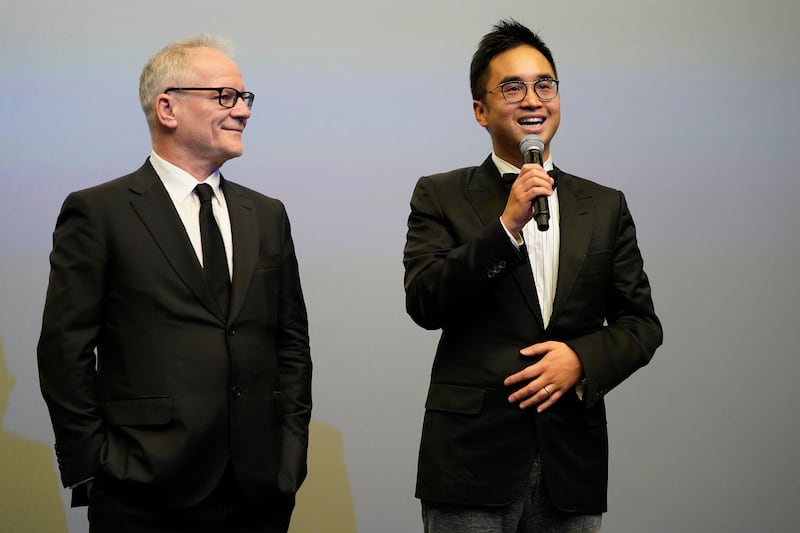
K11 Group Founder Adrian Cheng and General Delegate of the Festival de Cannes Thierry Frémaux | Source: Courtesy
Retailers like Cheng have little choice but to make the best of an uncertain short-to-medium turn outlook for Hong Kong retail, but other brands and retailers too are forging ahead with existing and new plans for the Hong Kong market.
American jeweller Tiffany & Co. recently opened its largest flagship store in Asia in Hong Kong — a 10,000 square-foot retail area in the heart of Tsim Sha Tsui, complete with the first Tiffany Blue Box Café outside of New York.
Just last week Gucci chose Hong Kong to be stop number one for its global tour of "Gucci Pin" pop-up stores. Asia is Gucci's largest and fastest-growing region — representing 37 percent of total sales, and it grew 18 percent year-over-year in the third quarter — so it's no surprise that many of the first pop-ups to open are in this region, including Hong Kong, Fukuoka (Japan) and Seongnam (South Korea).
When asked about the wisdom of kicking off in Hong Kong, where parent-company Kering saw overall sales decrease 35 percent in the third quarter of this year, Gucci Chief Executive Marco Bizzarri defended the decision.
You can't compare now with the retail reality of before, because you are comparing apples and oranges.
“Our customers in Hong Kong represent a very important community for us,” Bizzarri said. “Digital technology brings us together in many ways and Hong Kong is at the forefront of this new digital world, an epicentre of innovation. Gucci Pin is therefore a natural fit.”
ADVERTISEMENT
According to Brock Silvers, Managing Director at Adamas Asset Management, the ongoing nature of Hong Kong’s entrenched political problems and the now-expected longevity of tourism decline means that Hong Kong’s luxury retail sector “will have to adjust to a new, more restrained reality”.
Having said that, Silvers also sees the global luxury retail trend of seeking differentiation via extraordinary service and experience making an impact in Hong Kong.
“In a strong but worrisome market like Hong Kong, this will only become more pronounced and Hong Kong consumers will expect it to an increasing degree,” he predicted. According to Bernstein analyst Luca Solca, rumours that Hong Kong has lost up to 85 percent of its luxury retail sales this year are exaggerated.
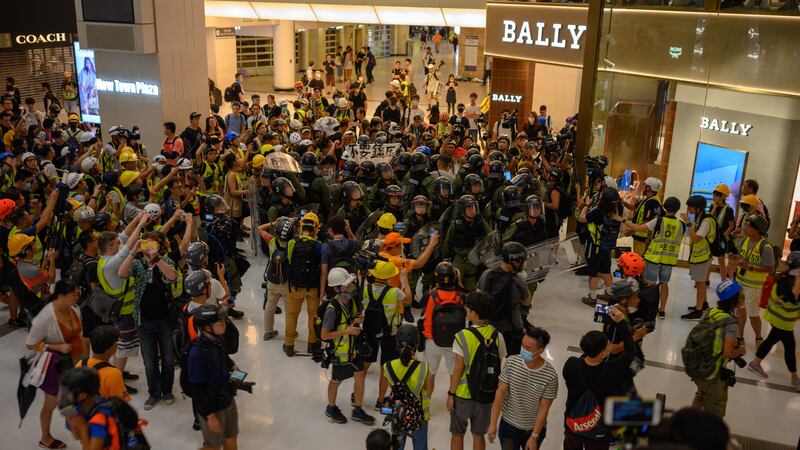
Protesters in New Town Plaza shopping mall in Hong Kong | Source: Shutterstock
“It depends how the year will proceed, but so far the year-to-date decline is single digits,” he told BoF last month. Official data from Hong Kong’s statistics department show that, to the end of September, fashion and accessory retail sales slowed 8.9 percent, with jewellery and watches dropping 16.5 percent on the year over the first nine months of 2019.
Within K11 Musea, Cheng points to Chanel, which opened a specialist shoe outpost there, as well as Saint Laurent, Gucci, McQueen and Loewe as brands that are all doing well because they are either trendy, hot brands in general, or because they are offering a strong, category-leading product. Yohji Yamamoto is another strong performer, Cheng says, due to the brand's "die-hard fan base".
“In the near-term, I think if you have the right strategy, you will be resilient enough. I think it depends on the company’s direction. You can’t compare [now] with [the retail reality of] before because you are comparing apples and oranges,” he said.
On the agenda are more events at K11, including regular jazz performances, holiday events and a focus on couture and trunk shows that will continue throughout 2020.
While there is no doubt that this is a tough time for Hong Kong retail, it doesn’t mean luxury retailers are ready to give up on their old cash cow. With a renewed focus on special events for local consumers, some of whom may desire a distraction from the upheaval gripping the streets, retailers and brands are feeling their way toward something resembling a “new normal”.
时尚与美容
FASHION & BEAUTY
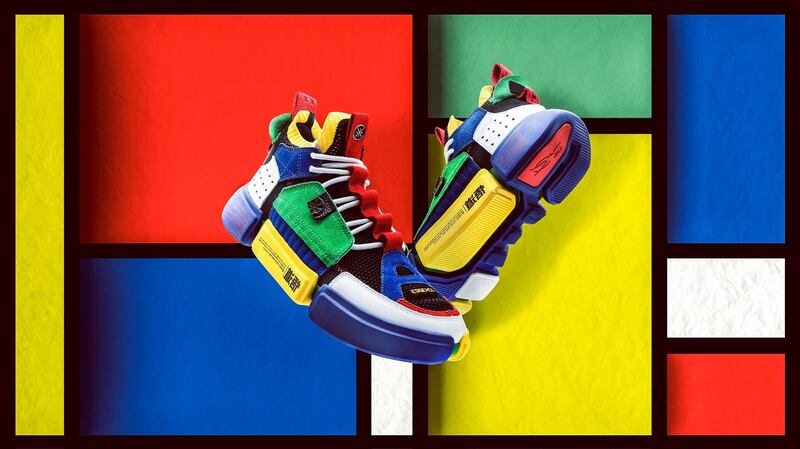
Li Ning footwear | Source: Li Ning
Li Ning is the ‘World’s Hottest Sportswear Firm’
Move aside, Nike and Adidas. The brand, founded in 1989 by Olympic gymnast Li Ning, is now the "best gainer" among global apparel companies and top performer on the MSCI APAC Index after tripling in Hong Kong trading this year. Not only is Li Ning winning the hearts of Chinese streetwear and sportswear consumers as the main homegrown contender to the likes of Nike and Adidas after runway shows at New York and Paris Fashion Weeks, it is expected to profit from the NBA's recent China controversy as local shoppers direct more of their spending towards domestic brands. (Bloomberg)
‘Fashion Now’ Showcase Takes Centre Stage in Beijing
Unlike its higher-profile counterpart, Labelhood, which partners with Shanghai Fashion Week to present collections from China's rising fashion design stars, Beijing-based Fashion Now is an independent showcase that operates outside of its city's official fashion week calendar. Since 2013, Fashion Now, co-founded by Vogue China alum Jiang Yilan and Ma Sisi, has offered Beijing's fashion community an alternative to China Fashion Week, which has less creative freedom than its counterpart in the business capital of Shanghai. Last week, Fashion Now presented two days of runway shows from designers including celebrity stylist-turned-designer Chris by Christopher Bu, Sans Titre, M Essential, Nomanoman and Ricostru x Skechers. (Fashion Now)
Guo Pei’s UK Runway Debut
The Chinese couturier who shot to global fame thanks to Rihanna's Met Gala "omelette dress" checked off her first London catwalk show this month after 22 years at the helm of her brand. The catwalk was hosted by the Victoria and Albert Museum to mark the 20th anniversary of its Fashion in Motion project, the museum's Raphael Gallery serving as an aptly striking setting for Guo's recent haute couture collection that was first shown in Paris this June. Certain looks took two years and 500 artisans to realise, with guests given an immersive front-row glimpse into the work of a seminal figure in China's ongoing shift from a manufacturing centre to design hub. (Forbes)
科技与创新
TECH & INNOVATION
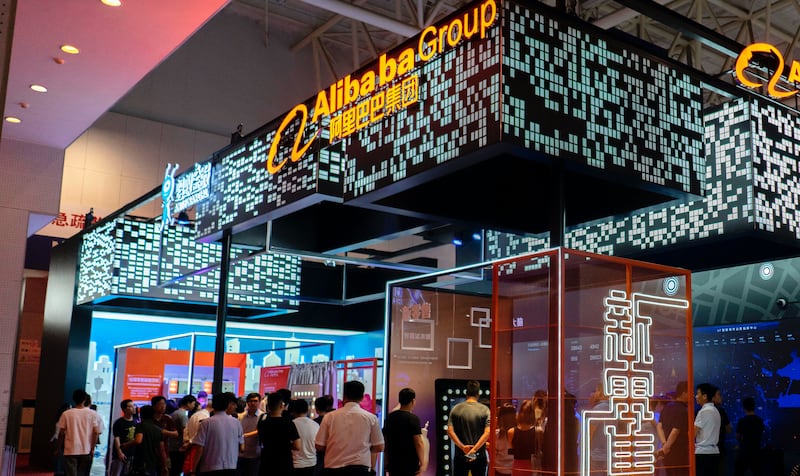
Alibaba store at the World Intelligence Congress in Tianjin | Source: Getty Images
Eyeing Second Listing, Alibaba Bets on Hong Kong
Five years after the Chinese e-commerce giant raised $25 billion in the largest US IPO in history (bigger than Google, Facebook, and Twitter combined), it has received approval to sell up to $15 billion in new shares through a secondary listing in Hong Kong. The move — potentially a major win for the Hong Kong Stock Exchange, placing it in competition with the New York Stock Exchange and Nasdaq for the global IPO crown — would be a remarkable vote of confidence in the embattled city, which has descended further into chaos in its 24th week of political riots. A Hong Kong listing would give more of Alibaba's Asian customer base the opportunity to own its shares, and the price of each share will be determined on November 20. (South China Morning Post)
China’s Mobile Payments Wars Continue
Hot on the heels of Alibaba-operated Alipay's international e-wallet launch last week, arch rival Tencent's WeChat Pay unveiled a partnership with the likes of Visa, Mastercard and American Express that will allow international visitors to use foreign credit cards on its platform in the mainland. However, users have already pointed out issues with Alipay's new feature: some international cards don't work on the app, while others encountered difficulties when 'topping up' their accounts and transferring funds between accounts. With China's inbound tourism revenue forecasted to hit $129.6 billion this year (up 2 percent from 2018), a winning tourist-friendly payment solution could be a boon for either company's tech and retail businesses. (SupChina)
Hong Kong-Based Fashion Education Platform Raises $2 Million
One-year-old fashion knowledge hub Motif has received a $2 million investment from Hong Kong-based textile tech startup incubator The Mills Fabrica. Motif, launched by innovation company Alvanon, which uses 3D data-driven technology to advise brand clients from Adidas to Chanel, produces online training courses for users spanning fundamental, technical, business and creative skills in the apparel supply chain. A majority of its courses are made in-house, including some created in partnership with the likes of local supply chain management giant Li & Fung. (Tech In Asia)
消费与零售
CONSUMER & RETAIL
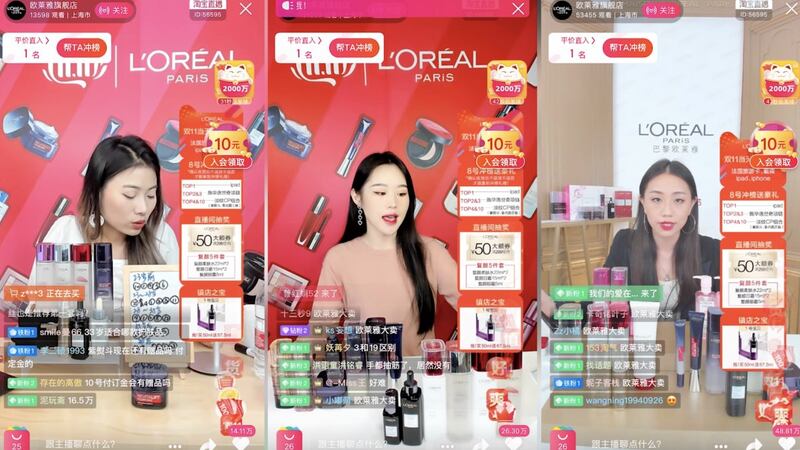
KOLs promoting L'Oréal products via livestream ahead of Singles' Day | Source: Alizila
Another Record-Breaking Singles’ Day Puts Other Shopping Festivals to Shame
Alibaba reported that it sold $38.4 billion worth of goods during its annual shopping festival on Nov 11 (a 26 percent increase from 2018), "making Black Friday look, yet again, like a yard sale." Data released by the Hangzhou-based retail giant reveals that 100 million orders were placed in the first eight minutes and one second of the extravaganza (59 seconds faster than last year's record), and global beauty giants L'Oréal, Lancôme, Shiseido and Estée Lauder were among the 84 brands that exceeded 100 million yuan (around $14.2 million) in GMV within the event's first hour. Meanwhile, Apple and Gap also made the list, putting to rest reports that predicted shoppers would boycott American brands due to current Sino-American trade tensions. In fact, the US ranked second among non-mainland markets buying from mainland China on Singles' Day by GMV, just after Hong Kong, where escalated violence during the city's pro-democracy protests don't appear to have dampened online shoppers' appetites. Meanwhile, Tmall revealed that Uniqlo has been crowned this year's brand winner across menswear and womenswear categories. (New York Times, BoF China)
A Turning Point for Asia’s Lingerie Makers
With Rihanna's Savage x Fenty success, Chika's Calvin Klein debut and the decline of Victoria's Secret, fashion has witnessed a watershed moment in the global lingerie industry. In Asia (where consumers have long opted for conservativism over self expression), there's still a long way to go. Outspoken influencers from Chinese model Rayzha Alimjan, South Korea's Sulli and Japan's Naomi Watanabe have championed empowerment and body positivity through lingerie, but their efforts have been met with resistance (Sulli reportedly killed herself last month, spurring critiques of how the K-pop industry forces idols to "maintain a wholesome image.") According to data from Tmall, comfort is the primary consideration for Chinese women shopping for underwear, and NetEase revealed that 20,000 out of 25,000 underwear products sold on JD.com highlighted shaping functions to shoppers. In a market with one foot in the past's stringent beauty ideals and one foot in the future's desire for comfort, older players are lagging behind as new brands like Neiwai gain ground. (Irina Li for BoF China)
Online Luxury Growing Fastest in Lower-Tier Cities (Deloitte & Secoo)
Chinese e-commerce platform Secoo partnered with Deloitte to release their annual "Analysis of Luxury Goods Consumption in China's Lower-tier Cities" at Shanghai's CIIE Fair last week. According to its findings, China's online consumption growth rate for luxury goods in China reached 37 percent last year, accounting for nearly 14 percent of the total domestic market. Proportionately, First and Second Tier consumers still account for the majority of online luxury market share, at 56 percent, though Deloitte predicts consumers from Third Tier cities and below will overtake them within the next few years. Already, consumers from lower tier cities purchase luxury with more frequency than their higher-tier compatriots. (Deloitte & Secoo)
政治、经济、社会
POLITICS, ECONOMY, SOCIETY
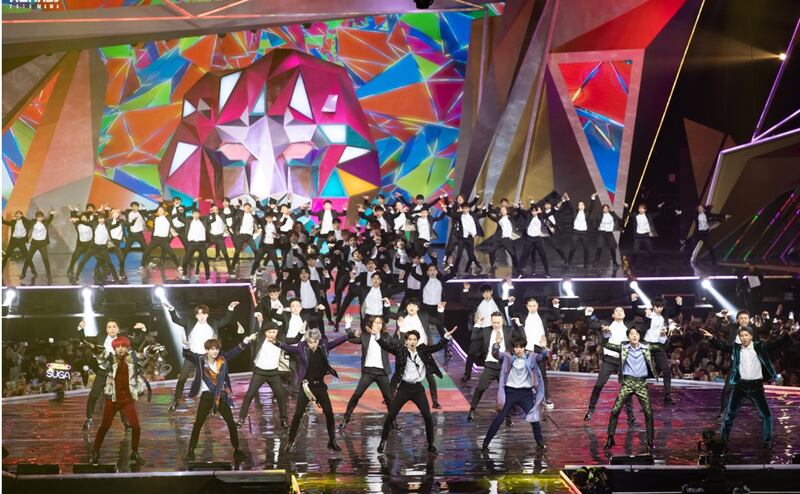
BTS perform at MAMA 2018 in Hong Kong | Source: MAMA
Chinese Students and K-pop Awards Flee Hong Kong as Chaos Escalates
Hong Kong entered its 24th week of chaos as radical protestors clashed with police officers near university campuses, resulting in a record number of school and bank closures and an evacuation of mainland Chinese students to neighbouring Shenzhen. According to government data released last week, Hong Kong's September retail sales are down 18.3 percent year-on-year, due in part to a 50 percent drop in tourist numbers in the first half of October reported by Chief Executive Carrie Lam. Even the Mnet Asian Music Awards (MAMA) — one of the K-pop industry's biggest annual events — has been rerouted to Japan despite being staged in Hong Kong every year since 2012, with a source close to the matter citing the protests as the cause. (South China Morning Post, Reuters)
Trump’s Tariff Threats Send Stocks Plummeting
On November 12, President Donald Trump said that he'd be ready to raise tariffs on Chinese imports "very substantially" if the US and China fail to agree on the "Phase 1" trade deal announced last month, spurring declines across international market benchmarks. Though Beijing said last week that the two superpowers agreed Washington would roll back some existing tariffs, Trump has disagreed. Continued escalation may reverse months of upward momentum following an easing of tensions over the past five weeks, though Trump has also said that a deal "could happen soon" as Beijing was "dying to make a deal." (Associated Press)
Pompidou to Bring Chagall and Picasso to China
Shanghai's buzzy art scene and abundance of big-spending buyers is drawing the world's top institutions to Chinese shores. Paris' Pompidou Centre opened its first outpost outside Europe on Shanghai's West Bund on November 5, inaugurated by none other than French President Emmanuel Macron (its other locations are in Belgium and Spain). The collaboration's first run will last five years and include three 18-month regular displays and 10 six-month special displays. Meanwhile, the city's Yuz Museum has announced a partnership with the Los Angeles County Museum of Art (LACMA) and Qatar Museums to facilitate cross-cultural exchange. Though the art market has not been immune to the wider global economic slowdown, western appeals to China's art crowd come as no surprise considering that in 2017, the country accounted for 21 percent of the $63 billion global art market, second only to the United States, according to last year's Art Basel and UBS global Art Market Report. (South China Morning Post)
China Decoded wants to hear from you. Send tips, suggestions, complaints and compliments to our Shanghai-based Asia Correspondent casey.hall@businessoffashion.com.
With consumers tightening their belts in China, the battle between global fast fashion brands and local high street giants has intensified.
Investors are bracing for a steep slowdown in luxury sales when luxury companies report their first quarter results, reflecting lacklustre Chinese demand.
The French beauty giant’s two latest deals are part of a wider M&A push by global players to capture a larger slice of the China market, targeting buzzy high-end brands that offer products with distinctive Chinese elements.
Post-Covid spend by US tourists in Europe has surged past 2019 levels. Chinese travellers, by contrast, have largely favoured domestic and regional destinations like Hong Kong, Singapore and Japan.